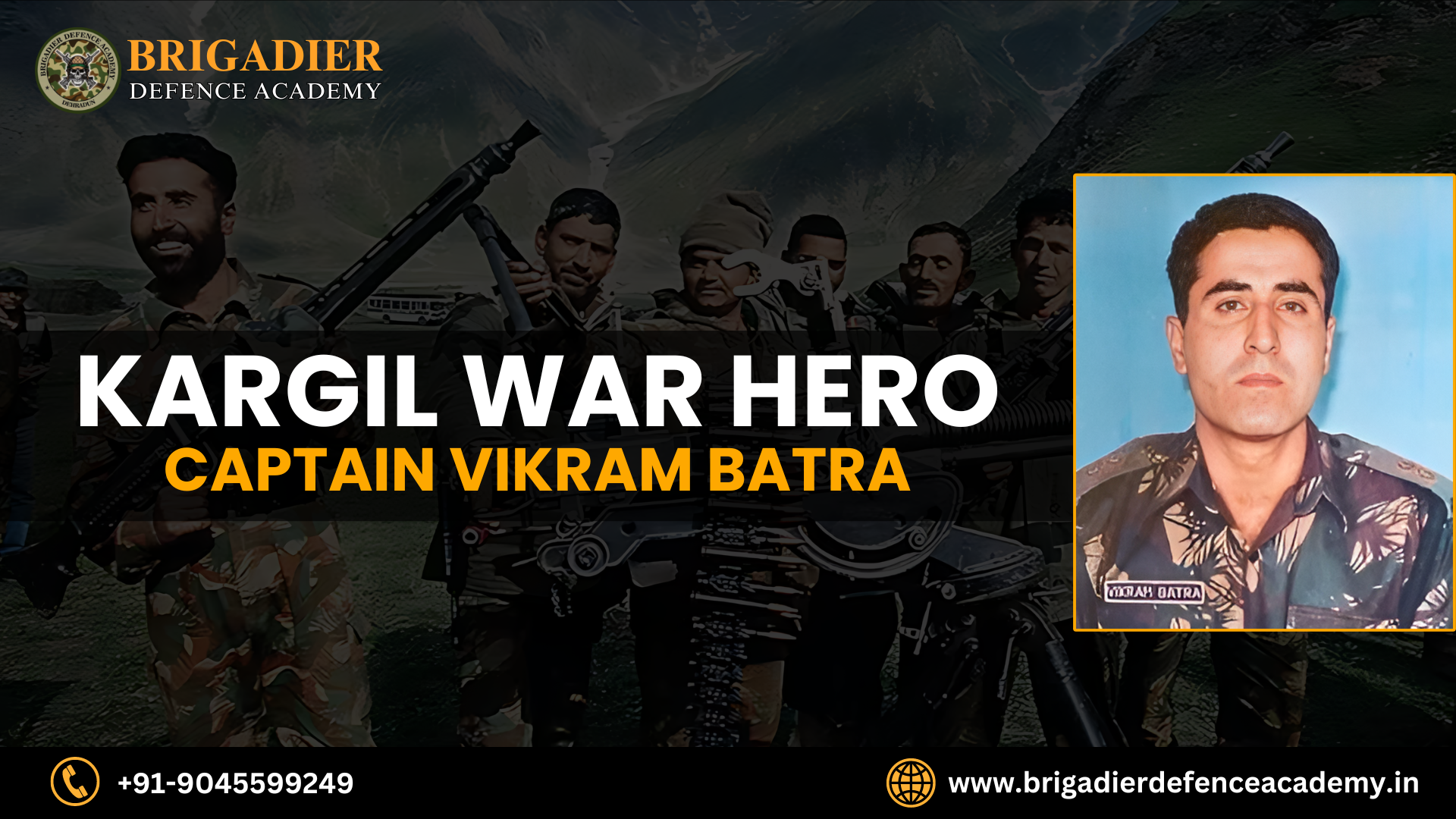The Fearless Icon Captain Vikram Batra :A Hero of Kargil War
In the annals of Indian military history, few names resonate as powerfully as that of Captain Vikram Batra. His extraordinary bravery during the Kargil War of 1999, fought between India and Pakistan, has made him a symbol of valor and sacrifice. His story is not just about military heroism but also about patriotic fervor and a profound dedication to his country.
Early Life and Military Career of caption Vikram Batra
Vikram Batra was born on September 9, 1974, in Palampur, Himachal Pradesh. From a young age, Batra displayed qualities of leadership and a penchant for the outdoors. His education at DAV College in Chandigarh was distinguished by his active involvement in sports and extracurricular activities.
He joined the Indian Military Academy, Dehradun, in 1996, where he was commissioned into the Indian Army’s infantry regiment, the Jammu and Kashmir Rifles. His leadership skills and robust personality quickly made him a popular figure among his peers and superiors.
The Kargil War
The Kargil War broke out in May 1999 when Indian forces discovered infiltrations by Pakistani militants and military personnel into the Kargil district in Ladakh. The rugged, mountainous terrain made the conflict intensely challenging and required exceptional acumen and physical strength from the soldiers.
Captain Vikram Batra was deployed in the Kargil sector as part of Operation Vijay. His first significant assignment was to recapture Point 5140, more than 17,000 feet above sea level, from Pakistani forces. Leading from the front, Captain Batra and his team scaled the cliff face and engaged in intense close combat. The success at Point 5140 was a turning point in the war, and his rallying cry, “Yeh Dil Maange More!” (This heart desires more!), became the battle cry of the Indian forces motivated by his indomitable spirit.
Following the victory at Point 5140, Captain Batra was tasked with recapturing more strategic positions. His next major battle was for Point 4875, a steep mountain peak with harsh climatic conditions. During the operation, Captain Batra, aware of the risks, insisted on rescuing an injured junior officer. In the process, he exposed himself to enemy fire and was fatally wounded.
Legacy and Honors of captain Vikram Batra
Captain Vikram Batra was posthumously awarded the Param Vir Chakra, India’s highest military decoration, for his conspicuous bravery in the face of the enemy. His actions have had a lasting impact, serving as a beacon of courage and patriotism for future generations. His life and heroism have been the subject of several documentaries, books, and a feature film, further immortalizing his contributions.
Remembering a Hero
Captain Vikram Batra’s life is a poignant reminder of the sacrifices made at the altar of national service. More than just a military saga, his story is a profound narrative of a young man whose love for his country transcended his own life. Captain Batra, affectionately known as “Sher Shah” for his fearless combat strategies and indomitable courage, became an enduring symbol of heroism and sacrifice. His exemplary actions during the Kargil War continue to inspire a whole generation of young Indians, both civilians and military personnel alike.
Each year, the nation collectively remembers and honors his valor. Memorials and tributes across the country serve as a testament to the high regard in which he is held. Captain Batra’s legacy teaches us the true cost of freedom and the importance of defending our nation’s sovereignty and integrity at all costs. His motto, “Yeh Dil Maange More,” resonates not just as a call to action but as a mantra of perseverance and unyielding will, qualities that he epitomized during his lifetime.
As India faces ongoing and new security challenges, the spirit of Captain Vikram Batra remains a beacon of courage and patriotism. It is a vivid reminder that the values he fought and died for continue to anchor and inspire future generations, ensuring his legacy is woven into the fabric of Indian society and its armed forces. His life story motivates us to uphold these ideals, fostering a resilient and determined India.







